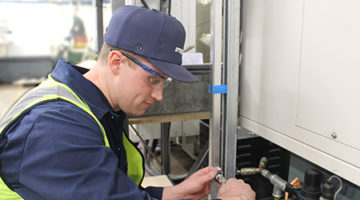Custom umbrellas have become an increasingly popular tool for businesses looking to enhance their outdoor advertising efforts. Unlike traditional billboards or signage, custom umbrellas offer a unique blend of functionality and visibility, making them an effective marketing asset. Their versatility allows them to serve not only as practical items providing shelter from sun and rain but also as moving billboards that capture attention in various settings. This dual purpose significantly boosts brand exposure and helps businesses stand out in crowded outdoor environments. One of the primary advantages of custom umbrellas in outdoor advertising is their high visibility. When printed with bold logos, vibrant colors, or catchy slogans, umbrellas become eye-catching promotional items that naturally draw people’s attention. Whether used at outdoor events, street fairs, cafes, or even in front of stores, umbrellas provide a broad surface area that can be seen from a distance. Their elevated position when open makes the branding visible above crowds, unlike many other promotional items that remain close to ground level. This height advantage ensures that your message is noticed by a larger audience.

Moreover, custom umbrellas foster positive brand associations by linking your company with comfort and protection. Customers and passersby associate umbrellas with shelter from the elements sunshine or rain so providing a branded umbrella suggests that your business cares about their comfort. This emotional connection can enhance customer loyalty and increase brand recall. People are more likely to remember and favor a brand that provided a tangible benefit during an outdoor experience, especially in unpredictable weather. Another key benefit is the practicality and durability of custom umbrellas. Unlike flyers or banners that can quickly become damaged or discarded, umbrellas are often kept and reused by recipients. This means your advertising message continues to circulate over a longer period. When someone uses your branded umbrella on a regular basis, it turns into a mobile advertisement that travels through neighborhoods, parks, and city streets, constantly reinforcing your brand presence. This ongoing exposure translates into excellent value for the advertising investment. In addition to direct consumer interaction, custom umbrellas can also be used as part of larger marketing campaigns.
Custom umbrellas also offer businesses a wide range of customization options, allowing them to tailor the design to match their brand identity precisely. From choosing the fabric color to adding logos, slogans, and contact information, companies can create umbrellas that perfectly align with their marketing goals. This customization makes the umbrellas not just promotional tools but also extensions of the brand experience, helping to communicate a cohesive message that resonates with the target audience. Furthermore, using custom umbrellas in outdoor advertising supports eco-friendly initiatives when companies opt for sustainable materials or donate the umbrellas after use. Many businesses are increasingly conscious of environmental responsibility, and eco-friendly branded umbrellas can communicate these values to customers. This enhances the brand’s image and attracts environmentally aware consumers who appreciate companies that prioritize sustainability. For businesses aiming to make a memorable impression outdoors, investing in Aquaholic Gifts custom umbrellas can complement traditional advertising methods and provide a fresh, effective way to connect with customers in any weather.






